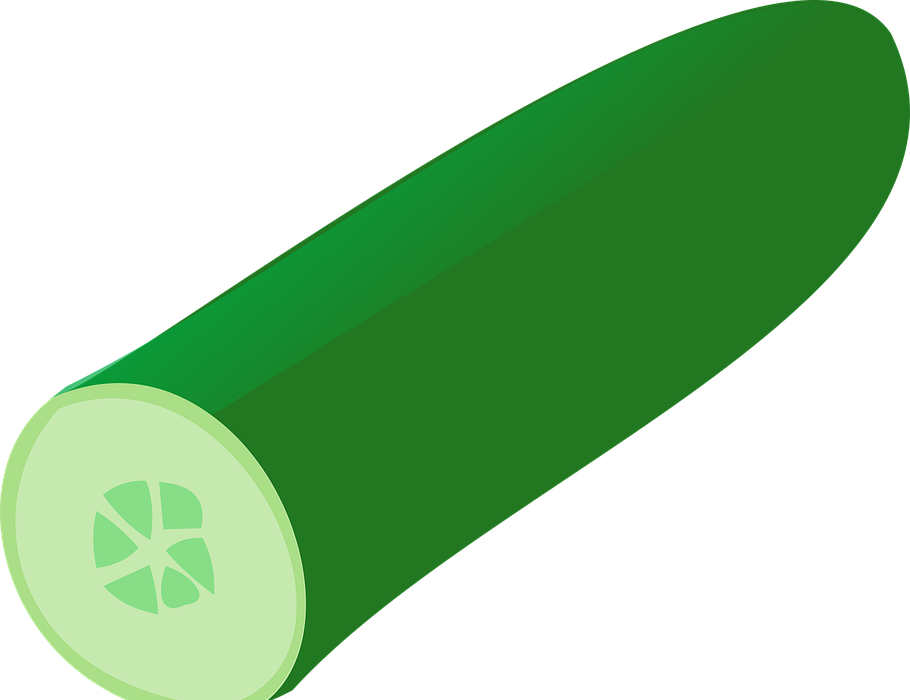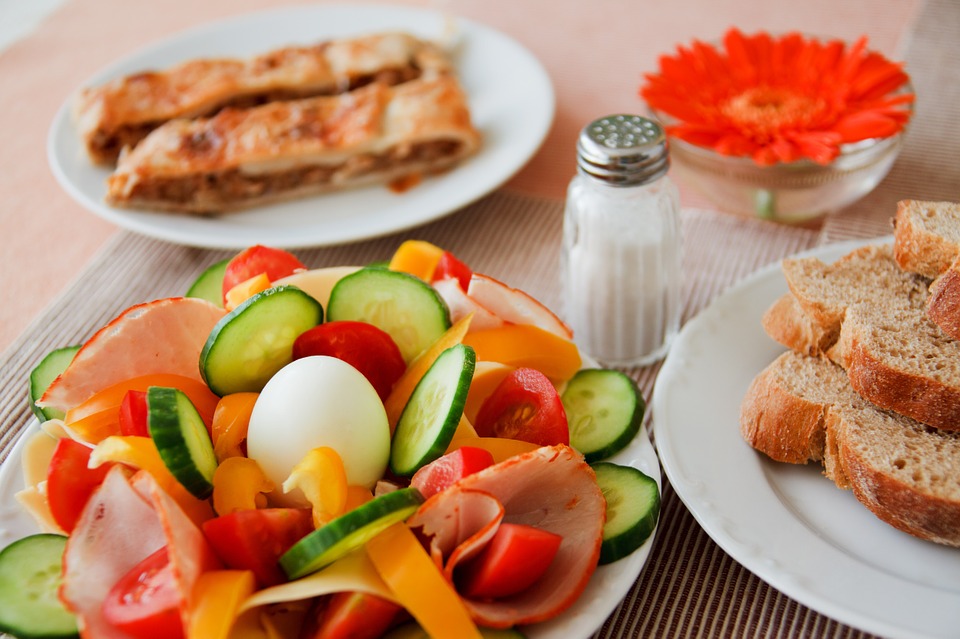This comprehensive guide provides a detailed exploration of the relationship between rabbits and cucumbers, addressing safety, nutritional value, and practical feeding advice. We'll delve into the benefits and potential risks of cucumber consumption, offering a clear understanding of how to safely introduce this refreshing treat into your rabbit's diet.
Part 1: Understanding the Basics

1.1. Cucumbers: A Safe Treat for Rabbits
While cucumbers are not a staple food for rabbits, they can be a safe and healthy occasional treat. Their high water content makes them a refreshing option, particularly during warmer months. However, moderation is key, as excessive consumption can lead to digestive issues.
1.2. Nutritional Value of Cucumbers for Rabbits
Cucumbers offer a modest contribution to a rabbit's diet, providing a small amount of essential vitamins and minerals.
- Vitamin K: Crucial for blood clotting and bone health.
- Vitamin C: A powerful antioxidant that supports the immune system.
- Potassium: Essential for muscle function and nerve transmission.
- Magnesium: Plays a role in energy production and muscle relaxation.
1.3. The Importance of a Balanced Diet
It's vital to remember that cucumbers should never replace a rabbit's primary diet of hay, fresh greens, and pellets. These provide the essential nutrients for overall health and well-being.
Part 2: Assessing the Potential Risks

2.1. High Water Content and Digestive Upset
The high water content in cucumbers can lead to digestive upset, particularly when consumed in excess. Rabbits have sensitive digestive systems, and large quantities of water-rich foods can disrupt their gut flora, potentially causing diarrhoea or gas.
2.2. Pesticide Residues: A Matter of Safety
Like all produce, cucumbers may contain pesticide residues. Washing them thoroughly before offering them to your rabbit is crucial to minimize potential exposure. Opting for organic cucumbers whenever possible is an additional measure to ensure safety.
2.3. Seeds and Their Potential for Trouble
Cucumber seeds are difficult for rabbits to digest and can pose a choking hazard or even cause intestinal blockages. Always remove the seeds before offering cucumbers to your rabbit.
Part 3: Feeding Guidelines for Safe and Enjoyable Consumption
3.1. Moderation is Key: Treats, Not Meals
Cucumbers should be offered as a treat, not a primary food source. A small slice or two, no more than a tablespoon in size, is sufficient for a healthy adult rabbit.
3.2. Frequency and Timing: A Balanced Approach
Offer cucumbers a few times per week as a treat after your rabbit has consumed their regular hay and pellets. This ensures they are not filling up on cucumbers and neglecting their essential dietary needs.
3.3. Choosing the Right Cucumber: Quality and Freshness
Select fresh, firm cucumbers with a vibrant green colour. Avoid soft, mushy, or blemished cucumbers. Organic cucumbers are preferable to minimize pesticide exposure.
Part 4: Introducing Cucumbers: A Gradual Approach
4.1. Start Small and Observe: Monitoring Your Rabbit's Response
Begin by offering a tiny piece of cucumber and observe your rabbit's reaction closely. Monitor for any signs of digestive upset, such as diarrhoea, lethargy, or changes in appetite.
4.2. Gradual Increases: Adjusting Based on Your Rabbit's Needs
If your rabbit tolerates the cucumber well, you can gradually increase the amount over time, but always err on the side of caution. Keep a watchful eye for any adverse effects, and adjust the frequency or quantity as needed.
4.3. Consulting Your Veterinarian: Expert Advice When Needed
If you have any concerns about your rabbit's health or their reaction to cucumbers, consult your veterinarian for professional guidance. They can assess your rabbit's individual needs and offer tailored advice.
Part 5: Exploring Alternative Treats for Your Rabbit
5.1. A Variety of Safe Vegetables: Expanding Your Rabbit's Diet
Rabbits can enjoy a variety of safe and nutritious vegetables, including:
- Bell peppers (red, orange, or yellow)
- Spinach (in moderation, due to oxalic acid content)
- Kale (in moderation, due to oxalic acid content)
- Parsley
- Cilantro
- Dandelion greens
- Basil
- Mint (in moderation, as some varieties can be toxic)
5.2. Occasional Fruits: A Sweet Treat in Moderation
Small pieces of fruits like strawberries, blueberries, and apples can be enjoyed as occasional treats. However, fruits should not replace your rabbit's regular diet and should be offered in moderation due to their higher sugar content.
Part 6: Addressing Common Myths and Misconceptions
6.1. Cucumbers and Gas: Debunking the Myth
While cucumbers are high in water, they do not inherently cause excessive gas in rabbits. Gas production is more likely due to other dietary factors or underlying health conditions.
6.2. Cucumbers and Weight Gain: A Low-Calorie Treat
Cucumbers are low in calories and fat, making them a safe and relatively low-calorie treat for rabbits. However, they should not be seen as a substitute for a balanced diet.
6.3. Cucumber Peels: Edible but Not Essential
The peels of cucumbers are edible for rabbits. However, it's often advisable to remove them before feeding, as they can be tougher to digest and may contain more pesticide residues.
Part 7: FAQs: Addressing Common Concerns
7.1. Can Baby Rabbits Eat Cucumbers?
Baby rabbits should not be given cucumbers until they are at least 8 weeks old. Their digestive systems are still developing, and cucumbers can be difficult for them to digest.
7.2. How Often Can Rabbits Eat Cucumbers?
Cucumbers should be offered as a treat a few times per week, no more than a tablespoon at a time.
7.3. Can I Give My Rabbit Cucumber Juice?
Cucumber juice is not recommended for rabbits. It lacks the essential fibre found in whole cucumbers and can cause digestive problems.
7.4. My Rabbit Seems to Be Allergic to Cucumbers. What Should I Do?
If your rabbit shows signs of an allergic reaction, such as itching, sneezing, or diarrhoea, stop giving them cucumbers immediately and consult your veterinarian.
7.5. Can I Freeze Cucumbers for My Rabbit?
Frozen cucumbers can be a refreshing treat for rabbits in the summer. Ensure they are thoroughly washed and dried before freezing.
7.6. Can Rabbits Eat Cucumber Rinds?
While cucumber rinds are technically edible for rabbits, they are often tougher to digest than the flesh and may contain more pesticide residues. It's generally best to remove the rind before feeding cucumbers to your rabbit.
7.7. Are There Any Specific Cucumber Varieties That Are Better for Rabbits?
There are no specific cucumber varieties that are inherently better for rabbits. However, choosing fresh, firm cucumbers with a vibrant green colour is always a good practice. Organic cucumbers are preferable to minimize pesticide exposure.
Part 8: A Final Word on Cucumber Consumption
While cucumbers can be a safe and enjoyable treat for rabbits, it's crucial to exercise caution and moderation. Always prioritize a balanced diet of hay, fresh greens, and pellets, and consult your veterinarian if you have any concerns about your rabbit's health or dietary needs. By following these guidelines, you can help ensure your furry companion enjoys the occasional refreshing cucumber treat while maintaining their overall well-being.
Everyone is watching
-

Do Rabbits Lay Eggs? (The Surprising Truth)
OTHER TYPES OF PETSThis article will unravel the common misconception that rabbits lay eggs, exploring the fascinating world of r...
-

Can Rabbits Eat Grapes? A Guide to Safe Rabbit Treats
OTHER TYPES OF PETSThis comprehensive guide will explore the safety and suitability of grapes for rabbits, providing detailed inf...
-

What's a Group of Rabbits Called? (A Comprehensive Guide)
OTHER TYPES OF PETSThis article delves into the fascinating world of rabbits, exploring the various terms used to describe a grou...
-

Predators That Hunt Rabbits: A Guide to Natural Enemies
OTHER TYPES OF PETSI've always been fascinated by the circle of life, that delicate dance between predator and prey. Growing up ...
-

Are Rabbits Nocturnal Animals?
OTHER TYPES OF PETSThe question of whether rabbits are nocturnal animals is a fascinating one, with a surprisingly complex answer...
